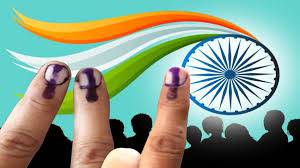There are 26 alphabets in the English language, and starting from K to pneumonoultramicroscopicsilicovolcanoconiosis, there are so many words that can be used to articulate our thoughts. But when it comes to healthy communication, mere words sometimes don’t suffice to explain situations clearly, sometimes leading to disagreements or arguments.
While communication is an integral aspect of all relationships, be it with friends or family, academic or professional, the absence of honest communication or feedback can cause issues. Sometimes for the sake of politeness, situations can be tolerated, but beyond a point, one has to realize that their views may not be accepted by others and make sure to hold the comfort of others over their need to say something that may be uncomfortable to someone else. On the flip side, if the others can articulate why the person shouldn’t voice out certain things, then that issue would have been avoided in the first place. This in itself is a paradox. If everyone was ideally communicative, there will be no miscommunication. But life is not ideal. Everyone doesn’t communicate in the same way. This, compounded with the factor that people have different views makes miscommunication a much more complex problem.
But take a moment to think about how many arguments and issues in your life have stemmed from miscommunication. Go on, take a minute, and mull it over. How many people have walked out of our lives, how many people have we stopped talking to, how many people may have judged us? Even if it hasn’t directly impacted us, we can see people around us suffer because of it. Even history provides ample examples of how miscommunication has not only exacerbated issues but also destroyed millions of lives! (A google search about the incorrect translation of the word Mokusatsu will tell the story of the historical catastrophe of the atomic bombing in World War 2!).
Now more than ever, miscommunication is rampant, and the consequences, inescapable. While all of us are physically stuck at home, we are still keeping in touch with our close friends and family through chats, calls, and video meets. But miscommunications continue to haunt us, augmenting the already tense situations. Even when you are not embroiled in the middle of one, seeing your near and dear fight regularly because of it, is devastating. Playing peacemaker, trying to de-escalate situations, and putting out incessant fires can get exhausting beyond a point of time. Sometimes you cannot pick sides and comfort, one person, without invoking the wrath of another. But being neutral is akin to doing nothing, which is frustrating when you just want to help. Having such issues repeat starts to weaken relationships by sowing seeds of paranoia, which ultimately grow into weeds of sorrow and dissatisfaction.
More often than not, when we are in the middle of a miscommunication, we don’t sense it immediately. We simply assume we are right and the other is in the wrong, not being able to sense the gaping chasm where critical communication is lacking. And when both the involved parties don’t want to admit they are wrong or missing something, they simply continue to fight, letting their emotions blind their judgment. People who were close to us one day, become strangers the next. While we know that people will come and go, it still hurts when they leave, as though everything we had didn’t mean enough to continue to be friends.
How is it that human beings, the social creatures that we are, still fall-prey to miscommunication, when a simple conversation will clear it all up? That’s an oxymoron. A simple conversation about an issue is never really simple. Somebody once told me, “there are no logical solutions to emotional problems”. So, while sitting down to talk may be the first step towards conflict resolution, the thoughts and complications of both sides need to be weighed in as well. Maybe two people can never agree about certain things. And that’s alright. We can still coexist without having to be in total agreement on everything. We must realize that miscommunication is not necessarily a product of malicious intent. Words of frustration are said by real people, who are going through real things just as we are. And words don’t always convey what they may seem to.
So how do we get past these miscommunications? (We all know it’s not always avoidable.)
There are no set-in-stone methods to solve it. Sometimes it’s as easy as sending a meme or changing the topic and some other times, it is too complicated to be ever resolved. Whatever may be the case, experience teaches us a good lesson: to be more mindful in the future. More mindful of others’ perspectives, more mindful of our own opinions and prejudices, more mindful of the words we choose and the actions we do. Because at the end of the day we can never take our actions or words back. After all, every day the sands of time slip through our fingers and a new dawn takes over at the horizon. At the end of the day, it is up to us to value people more than anything; so always remember that it is okay to agree to disagree and move on!





